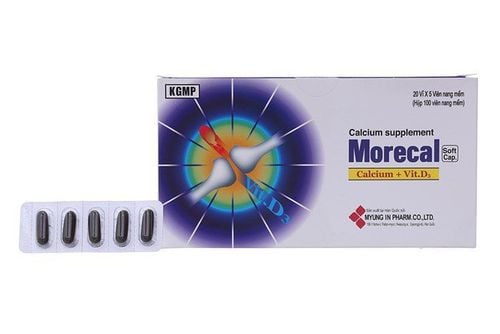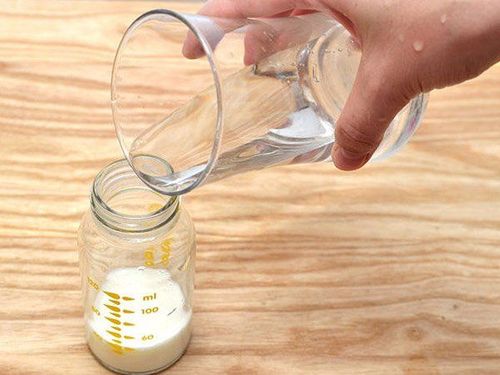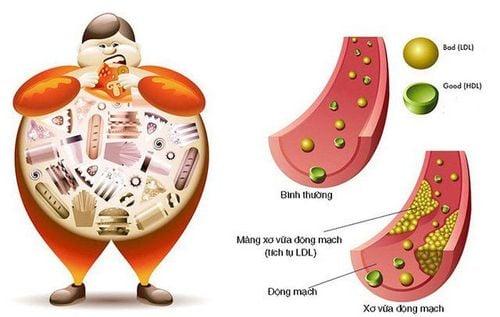This is an automatically translated article.
Nutrition is an extremely important factor in our activities. Especially in children, proper and adequate nutrition will help children develop comprehensively physically, mentally, and strengthen resistance to diseases. The following article guides parents on nutrition for 8-month-old children and answers the question what can 8-month-old children eat?
1. Nutritional indicators in 8-month-old children
Before finding out what 8-month-old children can eat, the first thing parents need to do is find out and evaluate the nutritional indicators of their child's weight and height, whether they meet the standards or not.
According to the World Health Organization (WHO), the weight and height parameters of boys 8 are as follows:
Average weight is 8.6kg Malnutrition when the baby weighs less than 7kg. In particular, children weighing 7.7kg or less are classified as high-risk groups for malnutrition. The risk of obesity when an 8-month-old boy weighs 9.6kg or more and is considered obese when the weight exceeds 10.5kg. The average height of a baby this age is about 68.3cm. Indicators of an 8-month-old girl according to WHO standards:
Average weight is 7.9kg Malnutrition: Weight less than 6.3 kg. Similar to boys, 8-month-old girls are at risk of malnutrition when they weigh less than 7kg. The risk of obesity for an 8-month-old girl is 9kg and for obesity when she weighs 10kg or more. The average height of a baby is about 68.7cm.

Giải đáp thắc mắc bé 8 tháng ăn được gì?
2. What can an 8 month old baby eat?
In children with normal development, the weight index in the first 3 months of life usually grows very quickly. Each month, babies can weigh an average of 600-800g, and there are even babies who gain up to 1kg/month during this time. However, after this period of adapting to the outside environment, the baby's weight tends to slow down, babies from 3-6 months old gain about 500-600g per month, from 6-12 months old, it's about 400g. every month.
Moreover, after 12 months of age, the baby's weight growth will be slower and somewhat cause anxiety for parents, but this situation is completely normal, so please rest assured and find out. Understand and build a scientific and reasonable diet for your baby. As long as the baby still eats well, gets enough sleep, plays normally, and the weight continues to increase steadily each month (albeit slower than before), they show that the child is still developing well.
Science has proven that breast milk is the best and only source of nutrition for babies in the first 6 months of life. Breast milk provides all the nutrients and minerals needed by the baby for normal growth and development. However, when babies turn 7 months old onwards, breast milk can only meet about 60% of daily nutritional needs. Therefore, parents need to have a plan to build a weaning diet for their children at this stage, especially those 8 months old with the main purpose of adding important nutrients to ensure intellectual development and growth. children's physicality. So the question is what can an 8 month old baby eat?
Weaning meals for 8-month-old babies are usually made in the form of powder, soup or porridge and must be suitable for the baby's needs and digestibility. Dishes should have a thin consistency suitable for each child, it is best for the mother to get the baby used to the liquid, dilute and gradually thickened meals.
At the age of 8 months, it is best to maintain breast milk and supplement with a solid diet with a suitable formulation, full of essential substances, changing according to needs, increasing quantity gradually for children to practice. familiar. The composition of the main meals in the child's weaning diet should provide adequate amounts of the following groups of substances:
Starch or sugar (found in rice, potatoes...): The child's need is about 20-30 grams each meal. Protein or protein (found in eggs, meat, shrimp, crab, fish...): 8-month-old babies need about 20-30 grams per meal. Fat (can be of animal origin or vegetable oil): The lipid requirement of infants who are just starting to eat solid foods is about 2.5ml per meal. After a few weeks can be increased to 5-10ml per main meal; Vitamins and minerals such as zinc, selenium, chromium, vitamin C, vitamins B1, B6 (found in vegetables and fruits): Children need about 20 grams per main meal. These minerals contribute to improving taste, helping children eat more deliciously and thereby helping to grow in height and weight according to standards. At the same time, they also support the maintenance and development of the immune system, enhance resistance, and help 8 months old children get less sick, limit digestive problems. Snacks in the 8 month old baby's weaning diet usually include weaning cakes, fresh fruit, whey or yoghurt... Snacks can meet about 5-10% of energy needs in day for children. An issue that parents need to pay special attention to is that in addition to giving children weaning food, children still need to continue to breastfeed 600-700ml per day and drink more water.
Some foods to help suggest parents in choosing food for an 8-month-old baby:
Fruit: Fresh fruit is a rich source of vitamins, minerals and trace elements necessary. Besides the familiar fruits like apple, banana, papaya... parents also have other quality options like kiwi, strawberry, pomegranate. A note when processing, parents should prioritize cutting fruit into long bars or different shapes to help 8-month-old babies learn the habit of holding food with their hands. Vegetables: The weaning diet with vegetables needs to be gradually changed by parents from mashed, pureed to steamed vegetable bars. When building a dish, it is recommended to combine a variety of nutrient-rich vegetables such as cauliflower, broccoli, peas or pumpkin... to bring very good effects in physical and brain development. baby's. Fish: This is a food that provides many essential nutrients. Carp, salmon contain a lot of omega-3 fatty acids and are very good for the growth and brain development of 8-month-old babies. The way to prepare fish for baby weaning is very diverse such as pureeing, cooking soup, cooking porridge and creating excitement for children. Tofu: Made from soybeans, it is rich in protein and good for growing babies, especially 8-month-old babies. Besides, tofu is a very safe choice for babies with lactose intolerance syndrome. Chicken: This is the most familiar, healthiest meat and can appear in a baby's weaning diet 7 months and older as a puree or soup. Eggs: High in good fats and healthy proteins. The easiest way to prepare is to boil eggs and cut them into bite-sized pieces. Note that 1-year-old babies should only be fed egg yolks. However, a matter of concern is that eggs belong to the group of foods that cause allergies. Yogurt: Yogurt made from breast milk or formula is a suitable food for babies. Yogurt provides a large amount of beneficial intestinal bacteria, essential vitamins and minerals.

Bữa phụ của bé 8 tháng thường có thể là bánh ăn dặm
3. Should calcium supplements for 8 months old baby?
What 8-month-old babies can eat, one of which is indispensable is calcium-rich foods. Foods rich in calcium commonly mentioned include: milk, dairy products (such as yogurt, cheese), seafood, legumes, grains, dark green vegetables... 100ml of fresh milk or 1 box of yogurt or 1 piece of cheese provides about 100mg of calcium.
Parents should re-evaluate their 8-month-old baby's weaning diet in terms of variety, including calcium-rich foods or not. The calcium requirement for children from 6 to 12 months old is about 400mg per day, so if the baby is breastfed and has a varied weaning diet, the baby will be provided with the necessary amount of calcium. In addition, for the best absorption of calcium by children, parents should pay attention to vitamin D supplementation because the vitamin D content in breast milk and food is often low. An effective vitamin D supplement is to sunbathe children or sometimes use external supplements. In addition to maintaining a complete and scientific nutritional regimen for children, parents should also pay attention to supplementing necessary micronutrients such as zinc, selenium, chromium, vitamins B1 and B6, Ginger, acerola fruit extract (vitamin C),... to improve taste, eat well, reach the right height and weight and exceed the standard, have a good immune system, strengthen resistance to reduce minor illnesses and Fewer digestive problems.
For more nutritional knowledge and child care for each age, parents should regularly visit the website vimec.com and make an appointment with the leading doctors, pediatric and nutrition experts of the National General Hospital. Vinmec when needing advice on children's health.













